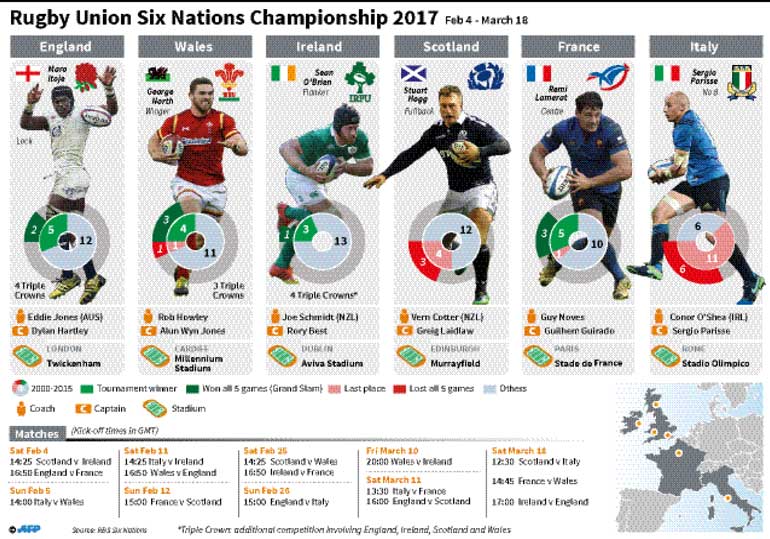Tuesday Feb 17, 2026
Tuesday Feb 17, 2026
Friday, 27 January 2017 00:00 - - {{hitsCtrl.values.hits}}
 London (Reuters): England hooker Dylan Hartley has been working to change his tackle technique as he returns next month to a game where new guidelines to cut out high tackles are expected to produce a slew of yellow cards in the Six Nations.
London (Reuters): England hooker Dylan Hartley has been working to change his tackle technique as he returns next month to a game where new guidelines to cut out high tackles are expected to produce a slew of yellow cards in the Six Nations.
Hartley was sent off and banned for six weeks for a high, swinging arm tackle in a club game in December and since then World Rugby has introduced guidelines that heavily penalise a tackler for contact above the shoulders, however unintentional.
Having spent more than a year of his career serving suspensions, Hartley is more aware than most that players need to adapt quickly on the international stage.
“We’re seeing a lot more cards and penalties in club games so we just have to adapt as players,” Hartley told reporters at the Six Nations launch on Wednesday when he was also confirmed as captain for England’s opener against France on Feb. 4.
“I’ve been working hard on my much-documented tackle technique. For me it’s a question of bringing my arms tighter to my body, a few technical things.”
England coach Eddie Jones was part of the working group behind the new directive, but stressed that nothing fundamental had changed.
“It’s always been illegal to attack the head but now if you touch the head it’s a penalty,” said the Australian, who looked as if he had been on the end of a high hit himself, sporting a huge black eye that he said came from a bathroom fall.
“It (the guidelines) will take some getting used to but it’s like when you put a new speed camera in and thousands of people are caught, but a year later the fines have decreased.
“The next three months will probably see a proliferation of cards until players learn to drive safely. “We don’t want parents to be worried about the safety of their kids and this is good for the future of the game.”
That safety concern was behind World Rugby’s initiative and the sport’s governing body has been pleased with how the change has been adopted at all levels of the game. “It’s early days but I think everyone recognises this is a positive and necessary move,” spokesman Dominic Rumbles told Reuters.
“These changes have been entirely founded on research on over 600 head injury incidents in over 1,500 matches and that data says that the tackle is responsible for 76% of head injuries.
“In the tackle 73% of those injuries occur to the tackler and the tackler is at much greater risk when he is upright. Essentially we are trying to take the two heads away from each other. Referees, players and coaches have been well briefed so everyone’s just getting on with it.”
Not everybody was so positive, however.
“I said to (former South Africa centre) Brendan (Venter) he’d never have played a game of rugby in his life if those rules were active in his day,” Italy coach Conor O’Shea said of the hard-hitter who is now his defence coach. “We are aware of and talk about it (high tackles) and I hope common sense will prevail but there will probably be more head injuries now with people going too low.” 